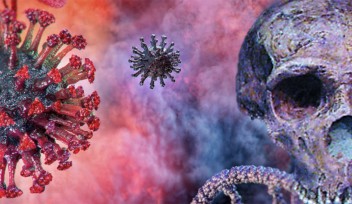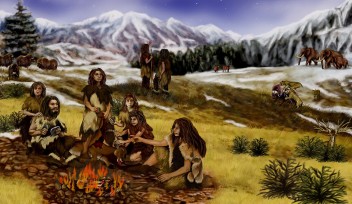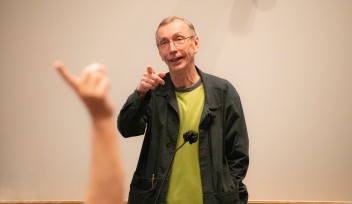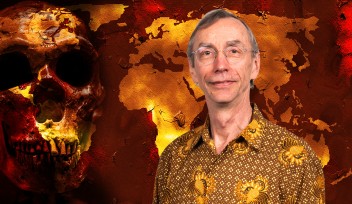OIST Adjunct Professor, Svante Pääbo, receives the Japan Prize
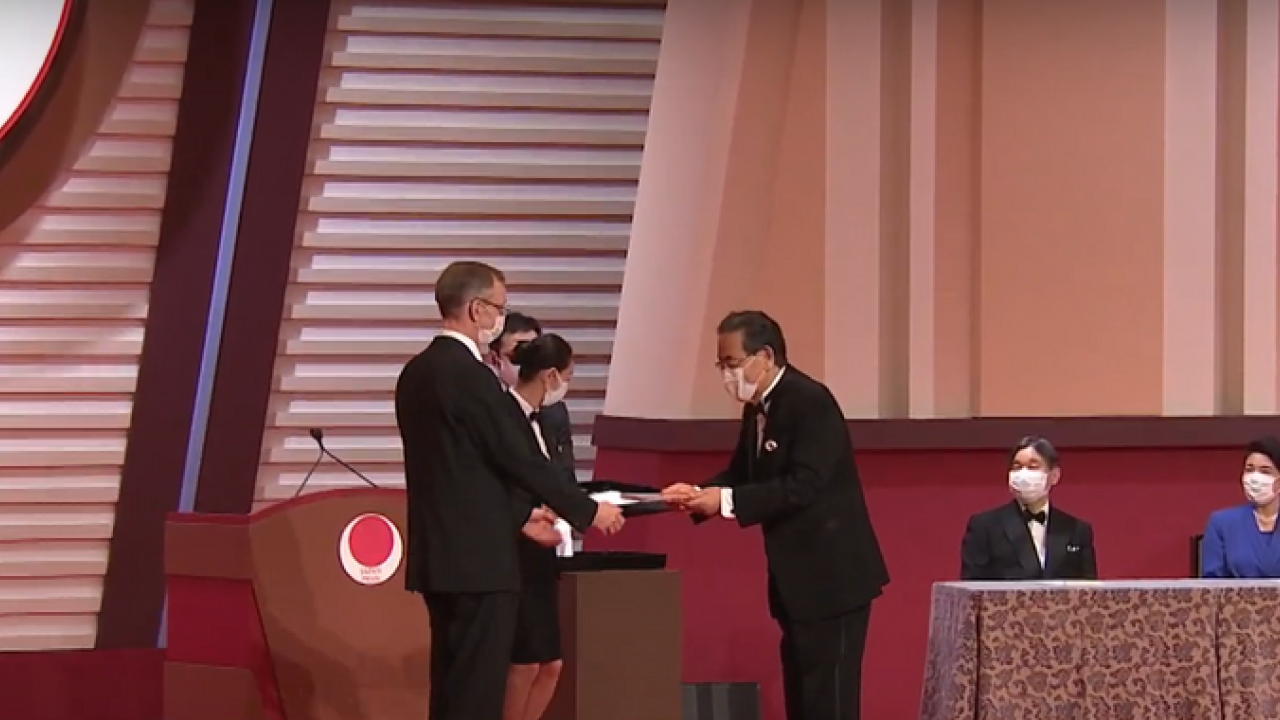
On April 14, 2022, Dr. Svante Pääbo, who leads the OIST Human Evolutionary Genomics Unit as an Adjunct Professor, received the Japan Prize award in the field of ‘Life Science’.
The Japan Prize is an internationally prestigious award that was established by the Japanese government in the 1980s to contribute to the development of science and technology worldwide.
Dr. Pääbo was first recognized as a Japan Prize Laureate in 2020, for his “pioneering contributions to paleoanthropology through decoding ancient human genome sequences".
The ceremony, which was postponed due to the COVID-19 pandemic, took place at the Imperial Hotel, Tokyo, in the presence of His and Her Majesty, the Emperor and Empress of Japan. The awards were presented to laureates from 2020, 2021 and 2022 by Dr. Yoshio Yazaki, Chairman of the Japan Prize Foundation.
After receiving his award, Dr. Pääbo gave an acceptance speech. “This research field has given us new perspectives on how people moved around the planet and how they mixed with each other,” he said. “The development of this research field has been, and continues to be, a very great adventure.”
“I accept this honor in recognition of this field and everyone who has contributed to it,” he added.

His Majesty, the Emperor of Japan, also gave an address. “It brings me great pleasure to be here today at the Japan Prize presentation ceremony together with our distinguished participants and guests from many different countries and regions of the world. On the occasion of this esteemed ceremony, I would like to extend my heartfelt congratulations to each of the distinguished laureates.”
In recognition of Dr. Pääbo’s research, the Emperor of Japan said: “Dr. Pääbo successfully decoded the Neanderthal genome for the first time in the world by adopting a genetic method of extracting and analyzing DNA fragments from ancient human bones. His method has since yielded findings that have led us closer to the core of the evolution of modern humans.”
At the end of the ceremony, Dr. Pääbo received a private audience with the Emperor of Japan, and had the opportunity to speak about his research and OIST to Fumio Kishida, the Prime Minister of Japan.
After his stay in Tokyo, Dr. Pääbo visited OIST, marking his first visit since becoming an Adjunct Professor in May 2020. He spoke about his research and career background to the OIST community as part of the OIST Lunchtime Faculty Seminar series.
Like many scientists, Dr. Pääbo’s path to his defining discoveries had many twists and turns. “As a child, I really wanted to be an archeologist and Egyptologist – that’s what I started studying at university,” he reflected, in an interview after the seminar. “But I had romanticized it, and I was disappointed, so I left the field and moved into medicine and later biochemistry.”

Then, unable to leave his childhood fascination behind, he tried extracting DNA from Egyptian mummies in museum as a side hobby. After some initial success, he took a postdoctoral position at the University of California at Berkeley, under the supervision of Professor Allan Wilson, an expert in human evolution and sequencing ancient DNA, setting him back on his current career trajectory.
Over the subsequent years, he made several key discoveries in the field of paleogenetics, first decoding the first DNA sequence from Neanderthals, and then identifying a previously unknown extinct species of human – the Denisovans – from the DNA of an ancient finger bone found in a cave in Siberia. He also discovered that Neanderthal and Denisovan genes could be found in certain human populations today. This DNA was passed down through breeding between our direct ancestors and these now extinct human species when they first met, rewriting the textbook on human history, and capturing the public’s interest.
“Many of us are interested in where we come from, what happened to us in the past, and what made us so successful that we could spread all over the globe,” he said.
Now, his work at OIST has moved away from decoding ancient genomes, and more towards understanding the legacy of the Neanderthal and Denisovan DNA passed down to us, as well as the function of DNA only found in modern humans.
“My dream now is really this – to understand some aspect of what makes humans special from a biological perspective,” he said. “That would be really great.”
###
Header image taken from the Japan Prize Foundation video stream.
Research Unit
For press enquiries:
Press Inquiry Form










